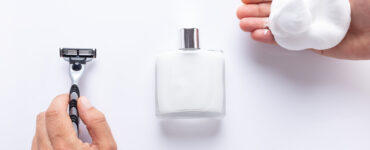Dealing with anxiety can be tough, but there are ways to manage it effectively. These 20 tips offer practical strategies, from simple techniques like deep breathing to seeking professional help. By incorporating these into your routine, you can take control of your mental well-being.
Deep Breathing
This method entails engaging in slow, deep breathing to soothe your nervous system and diminish stress levels. When you sense anxiety encroaching, locate a tranquil environment, inhale deeply through your nostrils for a four-count duration, retain your breath for four counts, and subsequently exhale at a gentle pace through your mouth for a six-count duration. Deep breathing stands as an uncomplicated yet potent approach accessible for you to employ whenever and wherever needed, allowing you to regain your composure and alleviate symptoms of anxiety.
Mindfulness Meditation
Stay present, and observe thoughts without judgment. Regular practice heightens awareness of thoughts and feelings, enhancing clarity and compassion. It reduces anxiety by detaching from thoughts and boosting emotional regulation.
Regular Exercise
Participating in physical activities triggers the release of endorphins, which serve as natural mood enhancers. Aim to engage in at least 30 minutes of moderate exercise on most days of the week. Activities like walking, jogging, swimming, or yoga can all be beneficial. Regular exercise not only helps reduce anxiety but also promotes overall mental and physical well-being.
Healthy Diet
The food you consume significantly impacts your mood and overall well-being. Certain foods, such as those high in sugar and processed ingredients, can contribute to feelings of anxiety and stress. Choose a well-rounded diet abundant in fruits, vegetables, whole grains, lean proteins, and beneficial fats. Additionally, avoid excessive caffeine intake, as it can exacerbate anxiety symptoms in some individuals.
Adequate Sleep
Sleep is essential for your mental health. Setting a regular sleep routine and crafting a cozy sleeping space can enhance both the quality and duration of your rest. Strive for 7-9 hours of sleep each night, as inadequate sleep can exacerbate symptoms of anxiety. Adequate rest is crucial for maintaining emotional balance.
Limit News Consumption
Though staying informed about current events is crucial, excessive exposure to negative news can heighten levels of anxiety. Set boundaries on media consumption and choose reliable sources for your news updates. Consider designating specific times of day for news updates to avoid constant exposure to distressing information.
Positive Self-Talk
Pay attention to your inner dialogue. Negative self-talk can perpetuate anxiety and self-doubt. Challenge these negative thoughts by asking yourself if they are based on facts or assumptions. Replace negative self-talk with more realistic, positive affirmations. For example, instead of saying, “I can’t do this,” try saying, “I’ll do my best, and that’s enough.”
Time Management
Overwhelmed by tasks? Create a daily schedule, prioritize, and break large tasks into smaller steps. Effective time management reduces stress and boosts productivity..
Progressive Muscle Relaxation
Tense and relax muscle groups to reduce physical tension. For instance, tense your shoulders for 5-10 seconds, then relax for 20-30 seconds. This technique promotes physical relaxation, aiding anxiety reduction.
Limit Stimulants
Stimulants like caffeine, nicotine, and recreational drugs can increase feelings of restlessness and anxiety. Consider reducing or eliminating these substances from your routine, especially if you notice that they exacerbate your anxiety symptoms. Reducing stimulants can lead to a calmer and more stable mood.
Social Support
Sharing your feelings and concerns with trusted friends or family members can provide emotional support and validation. Sometimes, discussing your worries can offer a fresh perspective or helpful advice. Don’t hesitate to reach out to your support network when you need it. Connecting with others can alleviate feelings of loneliness and isolation, common contributors to anxiety.
Set RealiI stic Goals
Setting achievable goals is essential for managing anxiety. Avoid setting unrealistic expectations for yourself, as unattainable goals can lead to frustration and heightened anxiety. Divide bigger goals into smaller, achievable steps, and take time to celebrate your advancements along the journey. Goal setting can provide a sense of purpose and accomplishment, reducing anxiety.
Express Gratitude
Practicing gratitude involves regularly reflecting on the positive aspects of your life. It can shift your focus away from anxiety-inducing thoughts and foster a more optimistic outlook. Think about maintaining a gratitude journal where you record things you appreciate each day. Practicing gratitude can heighten feelings of happiness and contentment.
Limit Perfectionism
Embrace imperfection as part of being human. It’s okay to make mistakes and not meet high standards. Letting go of perfectionism reduces anxiety and fosters self-compassion.
Visualization
This technique involves imagining yourself in a serene place during times of anxiety. Close your eyes, picture a calming scene, and focus on sensory details. Visualization redirects your focus from anxiety to tranquility, promoting relaxation and emotional well-being.
Journaling
This therapeutic practice involves writing your thoughts and emotions. It provides insights into triggers, a safe space to express feelings, and helps identify negative thought patterns. Journaling is a valuable tool for managing anxiety and promoting emotional well-being.
Professional Help
Seek therapy or counseling if anxiety significantly affects your daily life. Professionals provide tailored guidance, coping strategies, and support to manage symptoms and underlying issues contributing to anxiety. Reach out when needed.
Relaxation Techniques
Explore various relaxation methods to calm your mind and reduce anxiety. Techniques like yoga, guided imagery, and progressive muscle relaxation can promote relaxation and emotional well-being. These practices can help you find a sense of calm and serenity, even in the midst of anxiety-inducing situations.
Limit Screen Time
The blue light emanating from screens like phones, tablets, and computers can disrupt your body’s innate sleep-wake rhythm, making it challenging to both fall asleep and remain asleep. To improve sleep quality and reduce anxiety-related restlessness, limit your screen time before bedtime.
Engage In Hobbies
Pursue activities you enjoy and are passionate about, as they can provide a healthy distraction from anxious thoughts and promote relaxation.
Anxiety is a common challenge, but you don’t have to face it alone. These 20 tips provide a diverse toolkit for managing anxiety, allowing you to choose what works best for you. Remember, it’s okay to seek help when needed. By using these strategies, you can reduce anxiety’s impact and enjoy a more peaceful life.



